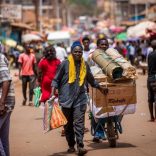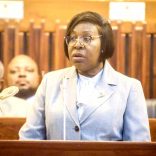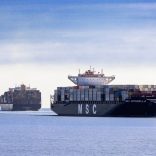IMF 'denials of debt relief’ triggering health and education cuts in Mozambique, 10 other ...
Consequences of the deadlock in “hidden debts” case are becoming apparent

The Mozambican Debt Group and the Debt Jubilee Committee want to “clear” the population of responsibility for debts they did not contract. The quality of life of Mozambicans is worsening, according to NGOs.
In Mozambique, as government and creditors continue negotiations to find a solution to the restructuring of so-called “hidden debts,” the population’s quality of life is deteriorating.
With the aim of drawing national and international attention to the consequences that the lack of funding is having on people’s lives, the Mozambican Debt Group NGO, in partnership with the London-based Debt Jubilee Committee, has been carrying out awareness campaigns aimed at “shaking consciences” and finding “a less painful solution” for the population.
The two organisations, which joined forces when this scandal broke, are seeking to declare these debts “illegal”. In an interview with DW Africa, Tim Jones of the Debt Jubilee Committee says exactly that. “We want the debt to be considered illegal because it has not been duly contracted. We want the government people responsible [for the debt] to be held accountable in court, alongside the London banks that lent the money. They are the only ones who should pay, not the Mozambican people,” he says.

However, this is not what is happening. While the Mozambican government and creditors fail to reach agreement and find a solution, the debt continues to increase. According to Eufríginia dos Reis from the Mozambican Debt Group, “in 2018 alone, the debt could grow by 33.2 million meticais” – an amount which, she says, “equals 11 percent of the total State Budget spending” and “takes away a large portion of the resources that should be channelled directly to key sectors”.
Health and education at risk
Dos Reis has no doubt that “this debt issue is already costing the citizen”. Proof of this are the problems already visible in areas such as health and education which, as a result of the scandal, “no longer benefit from budget support”.
For the Mozambican researcher, “urgent measures are necessary,” since “there are no medicines in the hospitals anymore, not even gloves for delivering babies”. “The doctors, nurses and technicians are there: they want to work, but there are no medicines. It is a situation very painful for the citizen that we are seeing,” she says .
“The citizen is the victim”
But Filipe Nyusi’s position on this subject is clear. The Mozambican president does not want to declare the state-guaranteed debts incurred between 2013 and 2014 by three public companies illegal. And that’s where the problem is, says dos Reis. “It is because the government does not want to declare the debts illegal that the country remains hostage to this lack of support, and funding in key areas for the life of the citizen suffers.” “There should be more sensitivity on the political side and on the part of the partners to find more just mechanisms from a human point of view,” she adds. “People’s lives are priceless.”
For now, given the lack of solutions, the state has been “seeking resources to finance itself”. And this has been done through “social expenses,” dos Reis says. “We see the taxes getting worse, the collection of revenues getting worse on both sides, and the victim is the citizen, the people who have nothing.”
One of the solutions pointed out by the organisations is for “the companies that contracted the debts to create a fund at the service of key [society] sectors”. Dos Reis says this idea has been presented to “some members of the government” and “there has been some receptiveness to the idea”. In her view, “the countries where the debt was contracted should also be sensitised” in order to “pressure creditors to be receptive” to some of these measures, she adds.
The NGO has also called for the publication of the full hidden debts audit report and greater civil society involvement in the debate.
Petition
Earlier this year, the Jubilee Debt Committee issued a motion expressing “concern about loans from London-based banks to Mozambican companies without the consent of the parliament”, with about 100 British MPs signing the petition. This is a stance which, according to the head of the Mozambican NGO, Mozambican parliamentarians should be watching.
“If the parliamentarians out there are doing this for us, why can’t our parliamentarians do it for their own people as well? They are the legitimate representatives of these people, so we want to make them aware so that they too join this campaign and support it with concrete actions.”
In addition to the concerns already mentioned, the UK MPs have demanded more transparency, to ensure that all UK government loans or government guarantees are made public at the time, and comply with the laws of the country in question.












Leave a Reply
Be the First to Comment!
You must be logged in to post a comment.
You must be logged in to post a comment.